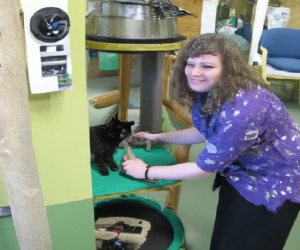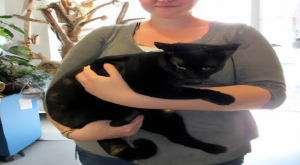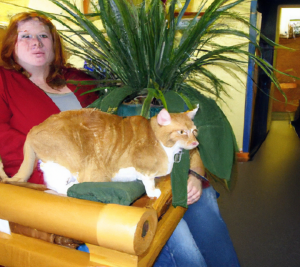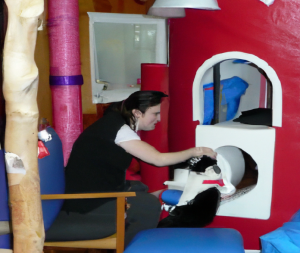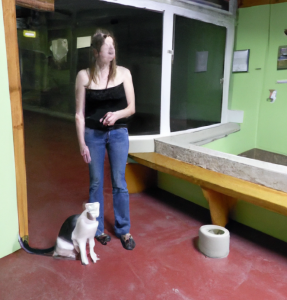
Diseases caused by cats

Diseases caused by cats hair – Allergic
A sizable fraction of people experience frequent allergic responses to cat dander and fur. The proteins in cat dander (dead skin cells), urine, and saliva cause these allergies. When cats groom themselves, they smear saliva on their fur, which can cause allergy responses in sensitive people because the saliva dries and releases protein particles into the air. Allergies in cats can cause mild to severe symptoms, such as runny or stuffy nose, itchy eyes, coughing, and in rare situations, asthma attacks.
Reducing exposure to allergens is essential to managing these allergies. This may be accomplished by preventing cats from entering bedrooms, reducing airborne dander with HEPA filter air purifiers, and routinely cleaning the house to get rid of dander buildup. Regular cat cleaning can also lessen the quantity of dander that your cat spreads. Antihistamines may be used as part of an individual’s treatment plan to reduce symptoms. To find the best course of action for managing allergies, it is essential to speak with a healthcare professional. They can suggest particular drugs or treatments, including immunotherapy or allergy injections, which gradually desensitize the body to cat allergens.
Diseases caused by cats to humans – Zoonotic diseases
Cats are known to be carriers of several viruses that may infect humans, and zoonotic illnesses are infections that can be spread from animals to people. The most well-known illness is toxoplasmosis, which is brought on by the parasite Toxoplasma gondii, which cats may excrete. Handling polluted soil or cat litter can result in human infection. Although toxoplasmosis seldom causes symptoms in healthy adults, it may be extremely dangerous for immunocompromised people and pregnant women. It can result in serious illnesses such as congenital infections in infants and severe sickness in those with weaker immune systems.
Cat Scratch Disease (CSD), which is brought on by the bacteria Bartonella henselae and spreads through cat bites, scratches, and cat licking of open wounds, is another serious zoonotic infection. Fever, exhaustion, and enlarged lymph nodes are the hallmarks of CSD. In healthy persons, it usually resolves on its own, but in immunocompromised individuals, it might cause more serious consequences.
Good hygiene practices, such as cleaning litter boxes and washing hands after handling cats, having cats inspected and treated for fleas regularly, and limiting rough play to avoid bites and scratches are preventive measures against zoonotic infections.
The Hidden Dangers of Fleas: Diseases caused by fleas in cats
Not only are fleas bothersome, but they also carry several diseases that people can contract from them. One of the most alarming illnesses is bartonellosis, which is often referred to as cat scratch fever because it is spread from cats to people by fleas. Bartonella is a pathogen carried by fleas that may infect cats and then people through bites or scratches. The Plague, which is caused by the bacteria Yersinia pestis and has a history of generating devastating outbreaks, is another serious illness that might be transmitted by fleas. Cat fleas can carry this bacteria, which can cause either pneumonic or bubonic plague in humans, depending on the route of infection, even though occurrences in the contemporary day are uncommon.
It’s important to continue using efficient flea control methods for pets to reduce these hazards. This entails using flea treatment items as prescribed by your veterinarian regularly, keeping your surroundings tidy to avoid flea infestations, and keeping yourself clean. Frequent cleaning of pet bedding and routine vacuuming of pet-occupied rooms can help lower the likelihood of flea multiplication and subsequent illness transmission.

Preventing Transmission: Best Practices for Cat Owners
Practices that lower the possibility of disease transmission between cats and people are part of responsible cat ownership. To guarantee that cats are healthy and free of illnesses and parasites that might infect people, routine veterinarian examinations are essential. Cats who are kept indoors are less likely to come into contact with parasites and infectious diseases that might infect them.
Cat owners should always properly wash their hands after touching their pets, tidying up their living areas, or coming into contact with cat litter. It’s also a good idea to dispose of cat waste quickly and properly and to wear protective gloves when cleaning litter boxes. Educating everyone in the home—especially the kids—about the need for good hand hygiene and responsible pet care can also help to stop the spread of illnesses from cats to people.
When to Seek Medical Attention: Symptoms in Humans to Watch For
It’s critical to be on the lookout for signs of a zoonotic illness that you may have acquired from a cat. Depending on the exact condition, symptoms can vary greatly, but they frequently include fever, exhaustion, enlarged lymph nodes, skin sores at the site of a bite or scratch, and in rare cases, more severe symptoms include breathing difficulties or serious gastrointestinal problems.
People who have these symptoms ought to consult a doctor right once, especially if they have recently been bitten, scratched, or in any other way in contact with a cat. Notifying medical professionals about the exposure may help them make a more precise diagnosis. For many of the illnesses that cats might spread, early medical intervention can greatly improve the prognosis, emphasizing the significance of acting quickly when symptoms appear.
Medical treatment
Targeting the particular bacteria causing the illness requires a comprehensive strategy for treating zoonotic infections contracted from cats. The type of infection—bacterial, parasitic, or viral—as well as the patient’s state of health influence the treatment options.
Healthcare professionals often prescribe antibiotics from particular classes that are well-known for their efficacy against a wide variety of germs for bacterial infections, such as those that cause Cat Scratch Disease. These include the tetracycline families, which are known for their broad-spectrum antibacterial action, and the macrolide families, which are frequently selected for their capacity to target intracellular infections. Because of their strong antibacterial qualities, aminoglycosides may be used in situations when the illness is more serious or the patient has certain health issues.
Treatment for parasitic infections, including toxoplasmosis, consists of antiparasitic drugs from families that are recognized for preventing parasite development and reproduction. The life cycle of the parasite and the effect the infection has on the host determine which antiparasitic medication is best. A carefully selected mix of antiparasitic drugs is used to successfully control the infection while reducing potential negative effects in patients with impaired immune systems or pregnant women.
Since some antiviral therapies may not be accessible for all viruses, therapy for viral infections contracted by cats is often supportive and focuses on symptom relief. The objective is to minimize pain while supporting the immunological response of the body.
Probiotics are beneficial to the treatment plan, especially when antibiotics are used. The gut microbiome’s natural equilibrium can be upset by antibiotics, which can have negative consequences on the gastrointestinal tract. Probiotics enhance overall gastrointestinal health throughout treatment by helping to restore this balance and lowering the risk of diarrhea and other digestive problems.
People who may have contracted zoonotic infections from cats should consult a medical expert immediately. To provide the best potential outcome, a healthcare professional can suggest the most suitable diagnostic tests and customize the treatment plan to meet the patient’s unique needs. Maintaining cleanliness and making sure dogs are healthy and well-cared for are two important preventive actions that can help lower the incidence of zoonotic illnesses.
It is crucial to get advice from medical experts who specialize in the appropriate sectors when treating illnesses that are spread from cats to people. Veterinarians and infectious disease experts are essential in the detection, management, and prevention of zoonotic disease transmission.
Dr. Jane Smith, MD, Infectious Disease Specialist, is renowned for her work in diagnosing and treating zoonotic infections. Dr. Smith, who has more than 20 years of expertise, has made a substantial contribution to the area by concentrating on illnesses that humans might contract from pets, especially those that come from cats. Her areas of specialization are treating these illnesses as well as educating the public about preventative measures. Numerous medical publications have included Dr. Smith’s research, demonstrating her contributions to our knowledge of and ability to treat zoonotic illnesses.
Dr. Richard Lee, DVM, Veterinarian, specializes in feline medicine and has dedicated his career to improving the health and welfare of cats while minimizing the risk of disease transmission to humans. In Dr. Lee’s office, cats undergo routine health examinations, immunizations, and parasite control procedures. By keeping cats healthy, Dr. Lee contributes to lowering the risk of zoonotic disease transmission. His partnership with medical specialists from the human world guarantees a holistic strategy for averting zoonotic illnesses, stressing the significance of one health—a concept that acknowledges the interdependence of humans, animals, and their common surroundings.
These experts highlight the need for a multidisciplinary strategy in the effective management of zoonotic illnesses. Their knowledge emphasizes how crucial it is for veterinary and human medicine to work together to protect the health of both animals and their owners.
